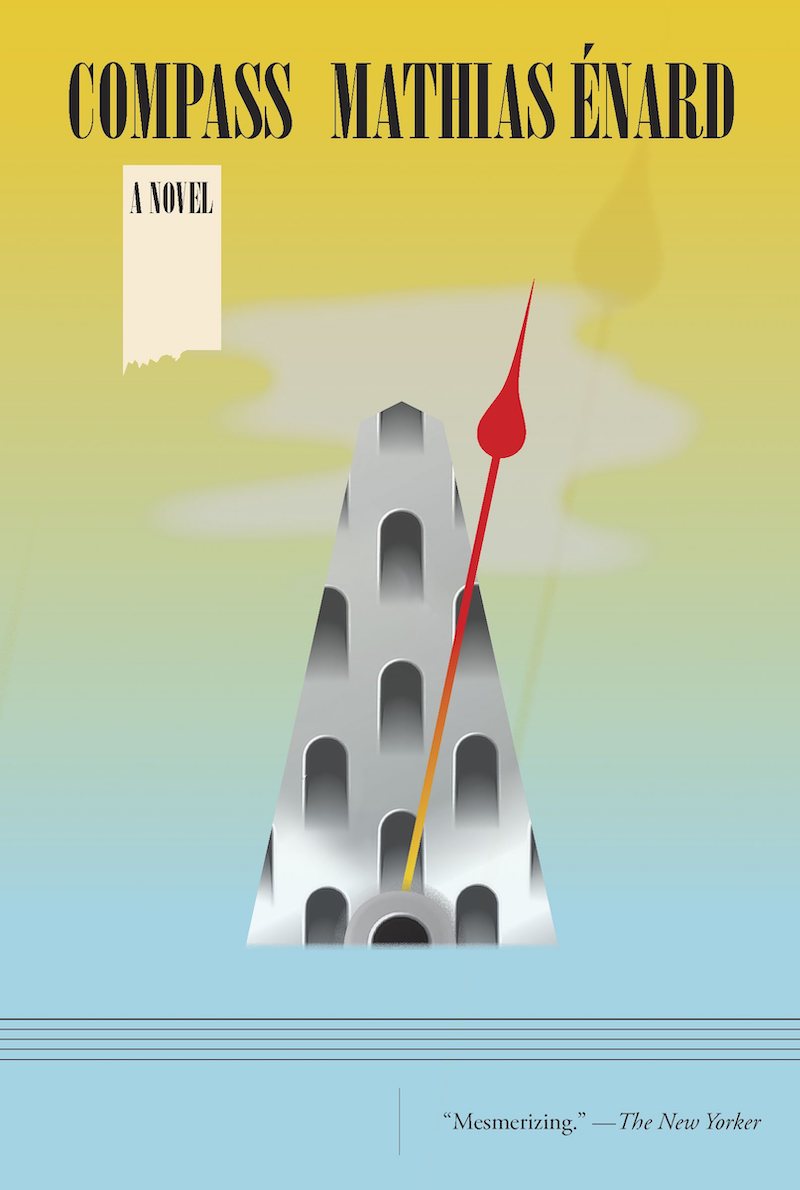
Compass
Mathias Enard
Today the prospect of having to get used to the presence of another body, of someone else getting used to mine, exhausts me in advance.
I discover that I am alone in the monument, alone surrounded by light, alone in this space with its disconcerting proportions; the circle of the immense cupola is welcoming, and hundreds of windows surround me — I sit down cross-legged. I am moved to the point of tears but I do not cry, I feel lifted up from the earth and I run my eyes over the Izmit faience inscriptions, the painted surroundings, everything glitters, then a great calm seizes me, a wrenching calm, a summit glimpsed, but very soon the beauty eludes and rejects me — little by little I rediscover my sense; what my eyes perceive now indeed looks magnificent to me, but has nothing in common with the sensation I've just felt. A great sadness grips me, suddenly, a loss, a sinister vision of the reality of the world and all its imperfections, its pain, a sadness accentuated by the perfection of the building and a phrase comes to me: only the proportions are divine, the rest belongs to humans.
We play our sonata all alone without realising the piano is out of tune, overcome by our emotions: others hear how off-key we sound, and at best feel sincere pity, at worse a terrible annoyance at being confronted with our humiliation.
The times are so bad I've decided to talk to myself.
None of the words come back to me, no speech, everything has fortunately been erased; only her sightly serious face remains and the upwelling of pain, the sensation of suddenly becoming an object in time, crushed by the fist of shame and thrust towards disappearance.